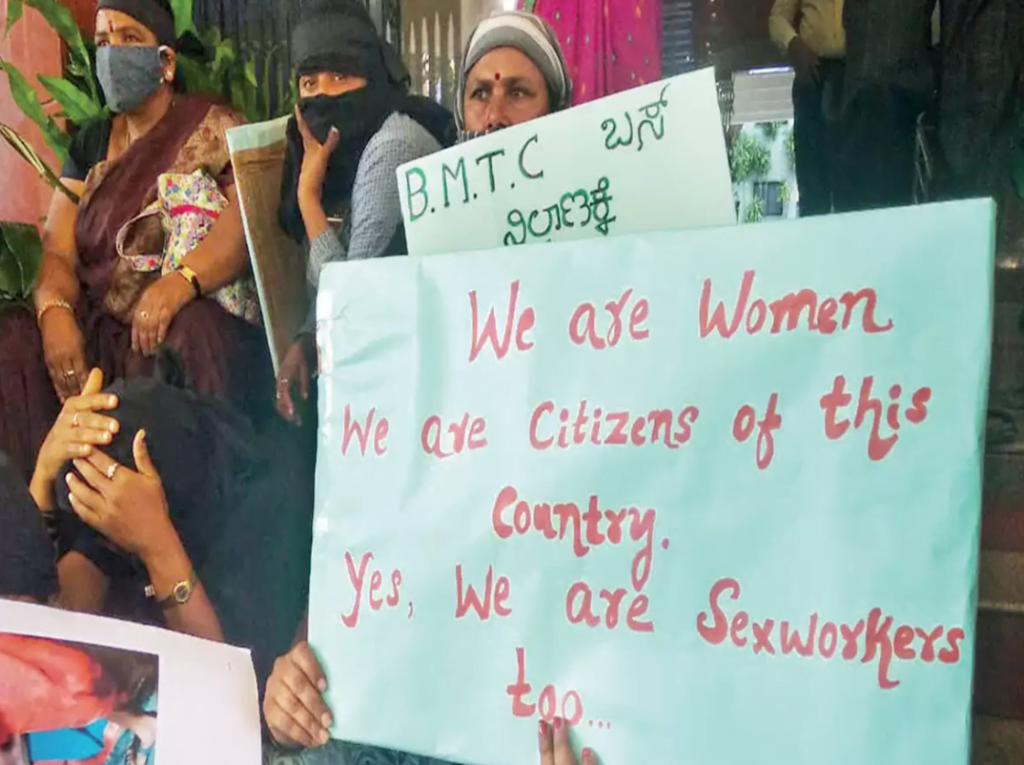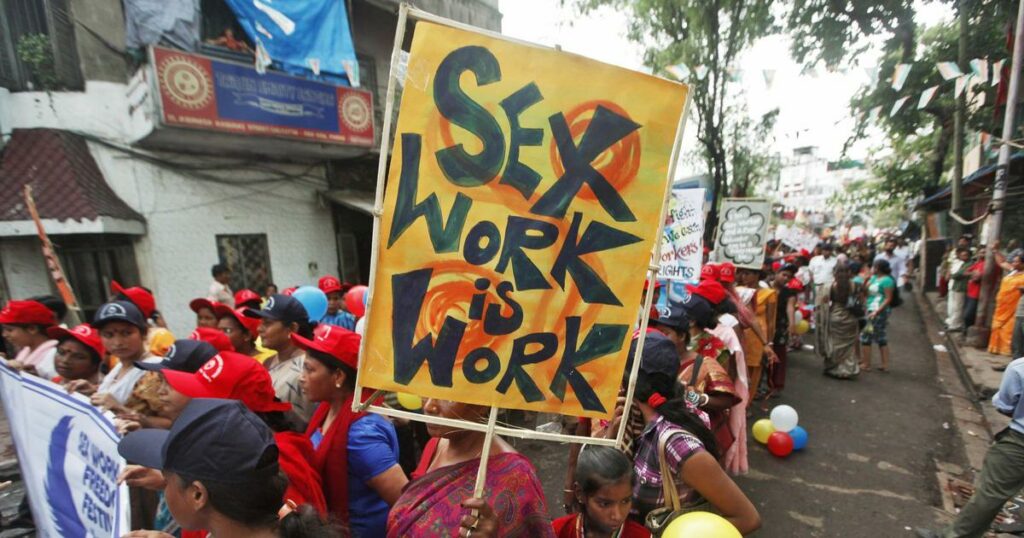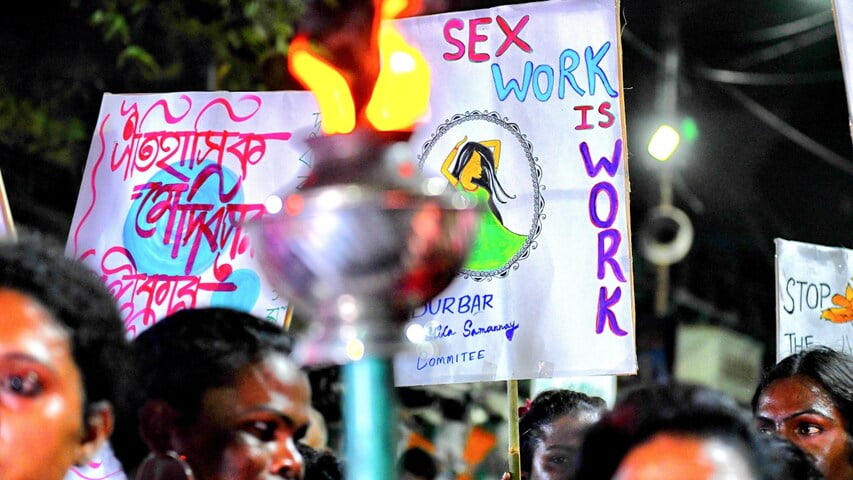Sex workers face a tapestry of adversity and resilience, often entering the field to escape social pressures, poverty, or violent situations. Some find financial independence and empowerment, while others face assault, exploitation, and health hazards. Despite the challenges, sex workers create vibrant groups for advocacy and support, regulating their working environment by negotiating boundaries with clients and running their enterprises.
The controversial topic of sex labour, the exchange of sexual activity for money, is a complex issue affecting cultures and individuals worldwide. Legality and perception vary, with some regions making it illegal and others regulating it to improve working conditions and safety.
Initiatives to legalise and decriminalise can promote safer communities by providing access to legal and medical support. Sex workers form strong networks that provide emotional support and advocate for their rights, while also managing their own companies and assuming control of their workplace.
Red-light districts might be seen throughout Kolkata, India’s lively metropolis, serving as a stark contrast to the city’s rich cultural tapestry. These regions, particularly Sonagachi, Bowbazar, and Kalighat, depict a complicated socioeconomic dynamic in which prostitution thrives.
Sonagachi, Asia’s largest red-light district, is home to an estimated 10,000 sex workers, while Bowbazar serves a lower-income clientele and Kalighat has a colonial history. These districts deserve a deeper examination to better understand the issues and potential solutions surrounding sex work.
The cruel world of Kolkata’s sex workers
In 2011, Budhadev Karmaskar Vs the State of West Bengal led the Supreme Court to hold that sex workers have a right to dignity under Article 21 of the Constitution, which guarantees the right to life and livelihood. After 10 consecutive years, In 2022 The Supreme Court recognised sex work as a profession and issued directives to protect the dignity of sex workers. This was a historic decision as India is known for its sex work in hazardous settings.

Prostitution is not ‘illegal‘ in India, as the Immoral Traffic (Prevention) Act of 1956 allows it. Crimes such as maintaining brothels, living on prostitution revenues, pimping, and performing sex work in public places are allowed under the Act. The guidelines emphasise the importance of police taking sex worker complaints seriously, not arresting them when brothels are raided, ensuring no child of a sex worker is separated from the mother due to their trade, treating all sex workers with dignity and not causing abuse, and ensuring they are treated with respect and dignity.
Even after battling for acceptance, the women working in the brothel receive no assistance at all from the lower levels. Their quality of life has not improved either. They still have daily struggles just to make ends meet.
Trapped beyond the brothels
In the heart of Kolkata, amidst the bustling streets of Bowbazar, Mamata Sikdar’s story unfolded- a tale of resilience, sacrifice, and unyielding determination.

At thirty-two, Mamata found herself at a crossroads, a solitary figure in a world that seemed to have turned its back on her. Born into the Adivasi community in North 24 Parganas, life had never been easy for her. When her husband abandoned her and their two children, Mamata sought refuge in her parent’s home, only to be met with rejection. With nowhere to turn, she made the courageous decision to venture to Kolkata, hoping to carve out a better future for herself and her little ones.
Their journey to the city was fraught with hardship. For months, they slept on the unforgiving streets near Sealdah Station, their dreams overshadowed by the harsh reality of survival but Mamata refused to let despair consume her spirit. Determined to provide for her children, she seized every opportunity that came her way. It was NRS Hospital where Mamata found solace amidst the chaos of her circumstances.
Working tirelessly as an “Aaya” (nursemaid) she embraced her role with unwavering dedication, earning enough to secure a modest rented house in the heart of Kolkata. Slowly but steadily, she began to rebuild her life, her resilience serving as a beacon of hope in the darkest of times. While her 13-year-old younger son was adjusting to the daily grind of a government school in Kolkata, Mamata experienced a devastating setback involving her older son. She tried her best, but the school administration refused to let him in, which hurt his chances going forward.
However, Mamata resisted giving up. Determined to give her kid the best shot possible for a better life, she searched for other options for him with unyielding conviction. She even added, saying ‘We make less money, but at least we’re trying. Since we moved to Sonarpur, none of the locals have helped me obtain free rations, and even though we have all the necessary documents, we don’t receive any benefits. I vote every year, but it doesn’t seem to have any impact on our lives.’
Muskan is not qualified, so when her husband rendered her and the girl child helpless, they were forced to move out. She then joined a brothel in Bowbazar, where she works all day and returns home in the evening. She dislikes her job there, but she is left with no other options. She stated that despite possessing all of the appropriate documents, the local authorities never contacted her; they only visited them during election seasons; otherwise, no one cared about them.
However, the problem does not end here. Thousands of women, like Mamata, are living their two crucial lives in brothels. 25-year-old Muskan who was born into a Muslim family three years ago entered a brothel and now resides in Calcutta. Her daughter, who is four years old, attended a government-aided school in Topsia.
However, Muskan is not qualified, so when her husband rendered her and the girl child helpless, they were forced to move out. She then joined a brothel in Bowbazar, where she works all day and returns home in the evening. She dislikes her job there, but she is left with no other options. She stated that despite possessing all of the appropriate documents, the local authorities never contacted her; they only visited them during election seasons; otherwise, no one cared about them. She even claims that ‘Durbar Mahila Samita,’ assists them from time to time, but their financial situation has not changed; yet, she is pleased with what she has.
Bokul Sen, a local TMC party worker, says to FII, ‘The Councillor of Ward 47 has always tried to organise a setup for govt projects to the locals, but if the locals of Bowbazar are not willing to co-operate, there is no one to blame. We’re here to assist them, but they need to contact us.’
He flatly denied any involvement in local extortion when questioned about it, adding, ‘We don’t extort money from people because we know their struggle for a living, we all live peacefully here, they never bother the locals, and the locals never bother them.’

One thing is clear, many of these women are uneducated. Another significant issue is that it is well known that women in rural West Bengal continue to face harassment despite having Voter ID cards, Ration cards and Aadhaar cards, but unfortunately their Aadhaar cards don’t get them rations. They do not receive any benefits from programs like Swastha Sathi, LakshmiBhandar, or Aikyashree and neither do their kids receive a good education.
This systemic failure condemns not just the women themselves, but also traps their children in a cycle of poverty and limited educational opportunities. The struggle of sex workers in West Bengal extends far beyond the brothels; it’s a fight for fundamental dignity and the chance to build a better life.
Many people in West Bengal’s rural districts are unaware of the government initiatives intended to support them. Residents like sex workers are particularly exposed because of this information gap, which is frequently caused by low literacy, language hurdles, and restricted internet access.
Initiatives like local outreach programs in widely understood languages, making use of local media, and streamlining communication materials are essential to closing this gap. Residents can be further empowered through partnerships with NGOs and technology such as smartphone apps. West Bengal can guarantee that the people living in its rural areas get the information required to create a better future by addressing the issue of low government awareness.
About the author(s)
Sumaiya Sayeed is an adaptable independent writer and translator (subtitler) who has a love for creating engaging content for a range of markets. Sumaiya is a freelance writer with a background in Communicative English. She specialises in producing captivating blog posts, articles, and content that draws readers in. she is capable of producing excellent work on schedule. When she's not pounding away at a keyboard, she likes to try out new hobbies to keep her skills sharp. Her hobbies include attending film festivals and film screening, writing screenplays, reading and street photography.





